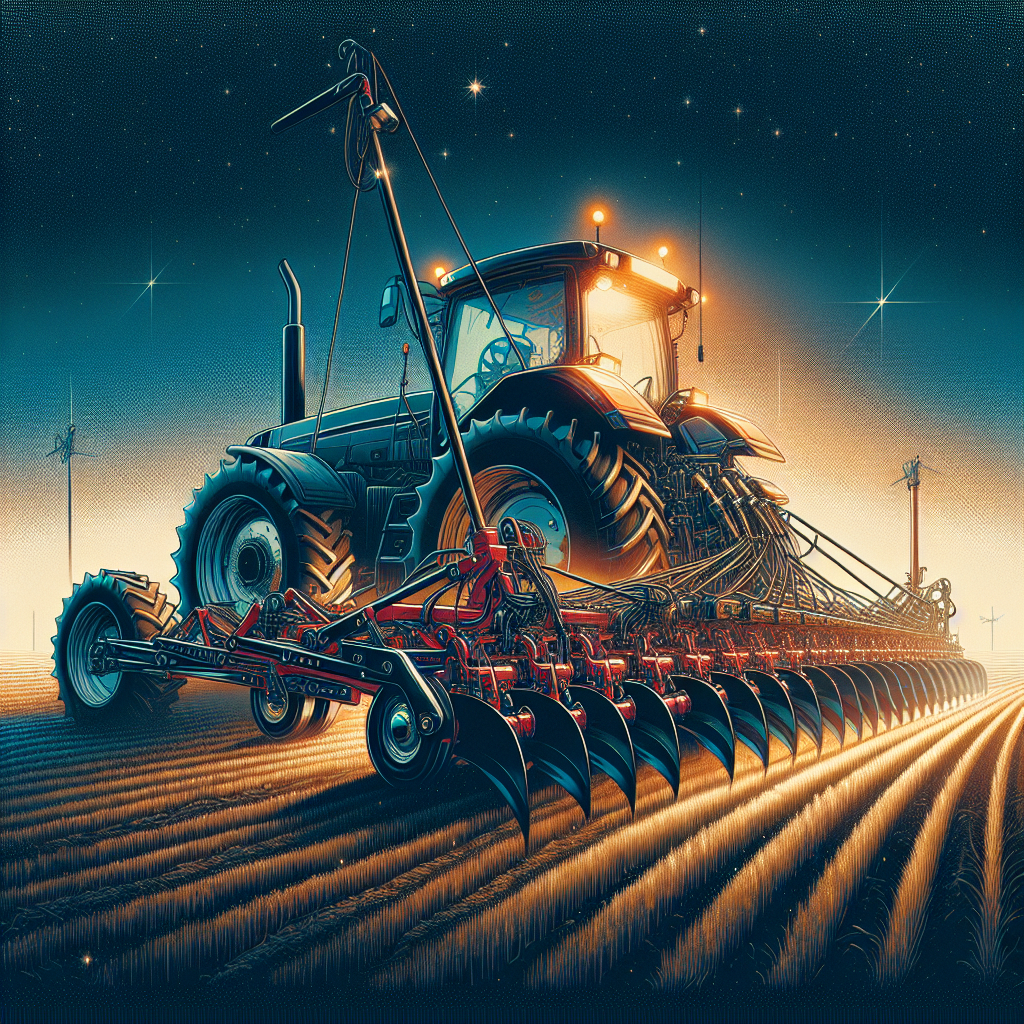Choosing the right plowing machinery for small farms can significantly impact productivity and soil health. In this article, we will explore the best plowing machinery options available for small-scale farmers, along with tips on how to maximize their efficiency.
Understanding the Needs of Small Farms
Small farms have unique requirements that differ from larger agricultural operations. The scale of the land, the type of soil, and the crops being cultivated all play a crucial role in determining the most suitable plowing machinery. Additionally, budget constraints and the availability of labor are important factors to consider.
Land Size and Soil Type
The size of the farm is a primary consideration when selecting plowing machinery. For small farms, compact and versatile equipment is often more practical. The type of soil also influences the choice of machinery. Sandy soils, for example, require different plowing techniques compared to clay soils. Understanding the specific needs of the land helps in choosing the right equipment that can handle the soil conditions effectively.
Crop Types and Rotation
The types of crops grown on the farm and the rotation practices also affect the choice of plowing machinery. Some crops may require deeper plowing, while others might benefit from minimal tillage. Crop rotation practices can help in maintaining soil fertility and structure, and the right machinery can facilitate these practices efficiently.
Top Plowing Machinery for Small Farms
There are several types of plowing machinery that are well-suited for small farms. Each type has its own advantages and is designed to meet specific farming needs. Here, we will discuss some of the best options available.
Rotary Tillers
Rotary tillers are a popular choice for small farms due to their versatility and ease of use. They are ideal for breaking up soil, mixing in organic matter, and preparing seedbeds. Rotary tillers come in various sizes, making them suitable for different land areas. They are also relatively affordable and require minimal maintenance.
Moldboard Plows
Moldboard plows are traditional plowing tools that are effective in turning over the soil and burying crop residues. They are particularly useful for preparing fields for planting and controlling weeds. For small farms, smaller moldboard plows that can be attached to compact tractors are a practical option. These plows are durable and can handle a variety of soil types.
Chisel Plows
Chisel plows are designed for deep tillage and are effective in breaking up compacted soil layers. They help improve soil aeration and water infiltration, which are essential for healthy crop growth. Chisel plows are suitable for small farms with heavy or compacted soils. They can be adjusted to different depths, providing flexibility in tillage practices.
Disc Harrows
Disc harrows are used for secondary tillage and are excellent for breaking up clods, incorporating crop residues, and leveling the soil surface. They are available in various sizes and configurations, making them adaptable to small farm operations. Disc harrows are also effective in weed control and soil preparation for planting.
Maximizing Efficiency with Plowing Machinery
To get the most out of plowing machinery, small farmers should follow best practices and maintenance tips. Proper use and care of the equipment can enhance its performance and longevity.
Regular Maintenance
Regular maintenance is crucial for keeping plowing machinery in good working condition. This includes checking for wear and tear, lubricating moving parts, and ensuring that all components are functioning properly. Timely repairs and replacements can prevent breakdowns and extend the life of the equipment.
Proper Adjustment and Calibration
Adjusting and calibrating the machinery according to the specific needs of the farm is essential for optimal performance. This includes setting the correct depth and angle for plowing, as well as ensuring that the equipment is properly aligned. Proper adjustment helps in achieving uniform tillage and reduces soil compaction.
Training and Safety
Training farm workers on the proper use and safety measures of plowing machinery is important. This includes understanding the operating instructions, wearing appropriate protective gear, and following safety protocols. Well-trained workers can operate the machinery more efficiently and safely, reducing the risk of accidents and injuries.
Conclusion
Choosing the best plowing machinery for small farms involves understanding the specific needs of the land, crops, and budget. Rotary tillers, moldboard plows, chisel plows, and disc harrows are some of the top options available. By following best practices in maintenance, adjustment, and training, small farmers can maximize the efficiency and longevity of their plowing machinery, leading to improved productivity and soil health.
